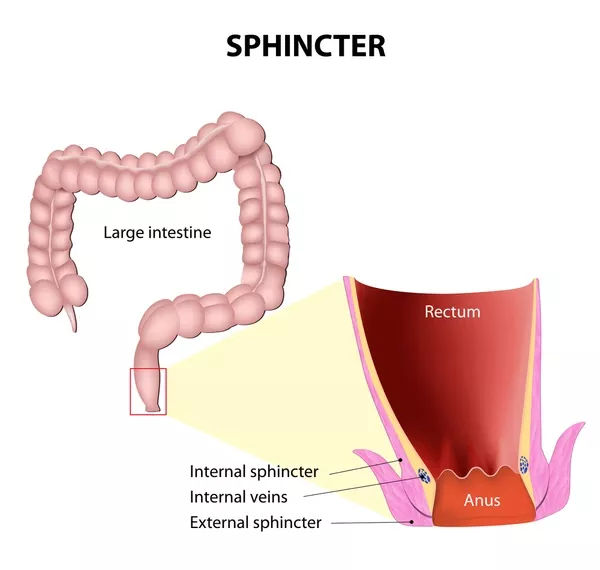Sphincter-Preserving Surgery: Balancing Quality of Life and Oncologic Safety
When treating conditions like rectal cancer or complex anal fistulas, the primary goal is to remove the disease effectively.
However, it is equally important to preserve the patient’s ability to control bowel movements and maintain their quality of life. Sphincter-preserving surgery focuses on achieving both — oncologic safety (complete disease removal) and functional preservation.
At Amrut Hospital, Dombivli, Dr. Pramod D. Bahekar, a highly experienced anal fistula surgeon in Dombivli, specializes in minimally invasive and laser-assisted techniques designed to protect sphincter function and improve long-term patient outcomes.

Understanding Sphincter-Preserving Surgery
What is Sphincter-Preserving Surgery in Rectal Cancer?
Sphincter-preserving surgery in rectal cancer refers to surgical techniques that remove the cancerous portion of the rectum while avoiding removal of the anal sphincter muscle.
This helps patients retain normal bowel function and avoid a permanent stoma.
These surgeries are commonly used in:
- Early-stage rectal cancers
- Low rectal tumors where margins can be safely preserved
- Situations where maintaining continence is crucial
Conditions That May Need Sphincter-Preserving Approaches
- Rectal cancer diagnosed at a treatable stage
- Recurrent rectal infections
- Complex anal fistulas posing risk to sphincter muscles
Importance of the Anal Sphincter in Daily Life
Role of the Anal Sphincter
- Controls bowel movements
- Maintains continence
- Allows social confidence and day-to-day comfort
Any surgery involving this muscle must prioritize its preservation to avoid unintended leakage or bowel control issues.
How Surgery Can Affect Continence?
Traditional surgeries can sometimes involve cutting sphincter muscles, which increases the risk of fecal incontinence. Hence, specialized surgical planning is important.
Sphincter Preservation vs Abdominoperineal Resection (APR)
What is APR?
Abdominoperineal Resection involves removing:
- The rectum
- The anal canal
- The sphincter muscle
This leads to the need for a permanent stoma (colostomy bag).
Sphincter Preservation vs Abdominoperineal Resection Outcomes
|
Aspect |
Sphincter-Preserving Surgery |
APR |
|---|---|---|
|
Continence |
Maintained |
Lost (permanent stoma) |
|
Body Image & Confidence |
Better |
May be affected |
|
Recovery & Lifestyle |
More natural |
Requires long-term stoma care |
|
Oncologic Safety |
Very High |
Very High |
Permanent Stoma vs Sphincter Preserving Surgery Quality of Life
For many patients, avoiding a permanent stoma helps:
- Maintain dignity
- Reduce lifestyle limitations
- Improve psychological well-being
However, patient selection must be precise to ensure cancer control.
Benefits of Sphincter Preserving Surgery Quality of Life
- Preserves natural bowel function
- Avoids stoma dependency
- Faster recovery and less discomfort
- Better emotional and social confidence
Quality of Life After Sphincter Preserving Rectal Surgery
Most patients:
- Return to daily routines sooner
- Maintain continence with minimal adjustments
- Experience improved comfort and long-term satisfaction
Ensuring Oncologic Safety While Preserving Function
How Surgeons Maintain Safety?
- MRI-based planning to determine tumor margins
- Evaluating tumor size and location precisely
- Choosing appropriate surgical technique based on tumor stage
Advanced Techniques Used
- Minimally invasive laparoscopic/robotic surgery
- Nerve-sparing approaches
- Laser-assisted treatment for associated fistulas
Sphincter-Preserving Surgery in Complex Anal Fistulas
When Fistulas Threaten Sphincter Integrity?
Deep or recurrent anal fistulas can damage anal sphincters if not treated carefully.
This requires high surgical expertise.
Complex Anal Fistula Surgery in Dombivli
At Amrut Hospital:
- Laser Fistula Surgery
- LIFT Procedure
- VAAFT (Video-Assisted Anal Fistula Treatment)
These procedures help protect sphincter muscles while resolving the fistula.
Why Choose Dr. Pramod D. Bahekar at Amrut Hospital?
Expertise in Sphincter-Preserving Surgery Rectal Cancer & Fistulas
Dr. Bahekar has extensive expertise in both cancer-related and benign anorectal surgeries requiring sphincter preservation.
Trusted Anal Fistula Surgery Doctor in Dombivli
His focus remains on:
- Complete disease removal
- Preserving continence
- Minimizing recurrence risk
Patient-Centered Care
- Detailed evaluation
- Personalized treatment recommendations
- compassionate long-term support
Frequently Asked Questions (FAQs)
- Does sphincter-preserving surgery work for all rectal cancer patients?
No. The suitability depends on the tumor’s stage, size, and location. Patients require evaluation by an experienced colorectal surgeon.
- Will I need a stoma after sphincter-preserving surgery?
Temporary stomas may be used for healing in some cases, but most patients avoid permanent stomas.
- Is sphincter-preserving surgery safe in terms of cancer recurrence?
Yes, when planned correctly using imaging and margins assessment, the oncologic safety is comparable to APR.
- Can complex anal fistulas be treated without damaging the sphincter?
Yes. Techniques like laser, VAAFT, and LIFT allow fistula treatment without cutting sphincter muscles.
- How long does recovery take?
Most patients recover within a few weeks, though total functional recovery may vary based on procedure type.
Conclusion
Sphincter-preserving surgery offers a superior balance between complete disease treatment and quality of life. With the right surgical expertise, many patients can avoid a permanent stoma while maintaining healthy bowel function.
For advanced sphincter-preserving surgery and complex anal fistula treatment, visit Dr. Pramod D. Bahekar at Amrut Hospital, Dombivli, where quality of life and long-term outcomes come first.
